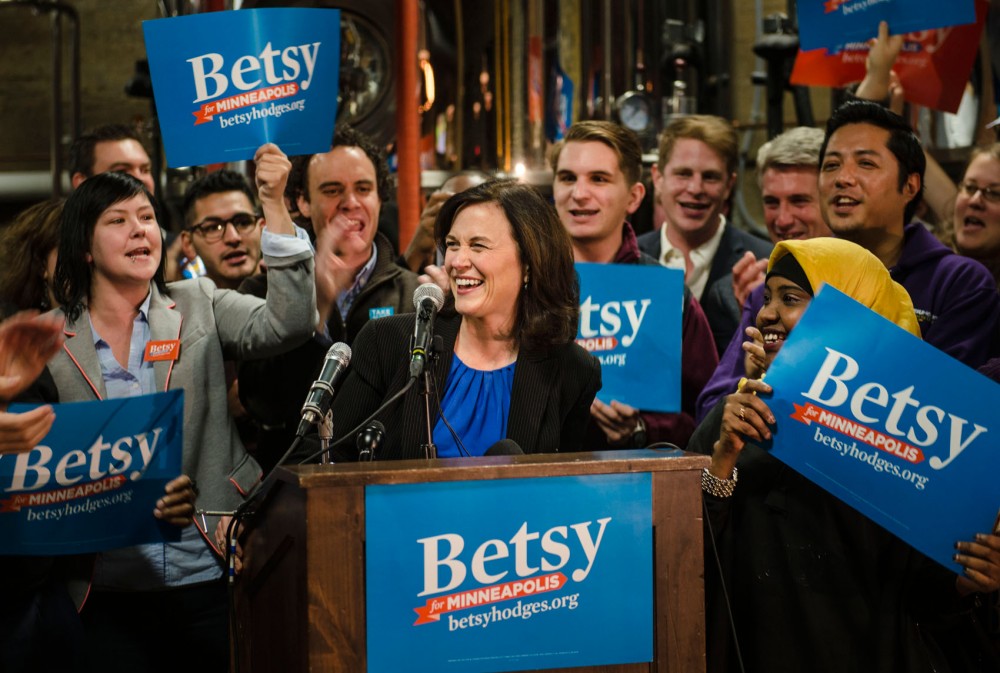Minneapolis residents can expect City Councilwoman Betsy Hodges to lead City Hall come January, succeeding three-term Mayor R.T. Rybak.
Hodges addressed a crowd of about 250 supporters at 612 Brew in northeast Minneapolis Wednesday night. She was introduced as “the next mayor of Minneapolis.”
“On Jan. 2 … it will be my job to live my gratitude by doing what I said I would do to work with you, to work with the community to build and grow Minneapolis,” she said in a speech.
Hodges’s closest rival, Mark Andrew, conceded from the race just hours after polls closed Tuesday. At that time, he trailed Hodges by more than 11 points.
“We were surprised and disappointed, of course, but Betsy won it fair and square, and I don’t think it was a predictable election,” Andrew said.
City Councilman and mayoral candidate Don Samuels said he was surprised Andrew didn’t lead the race.
“In a way, [Andrew’s concession] was making sure that his people are OK and that he doesn’t cherish or hold onto one day more of hope just for the sake of delaying the inevitable,” he said.
Hodges said she had a “good conversation” with Andrew after his concession.
“It was an honor to be in the same field as him,” she said.
Andrew’s campaign outraised Hodges’ by nearly $135,000. Andrew said he has no plans to pursue a different political office at the moment.
“It was a spirited campaign, and it was a privilege to compete for the mayor’s job, and we’re disappointed, but we wish council member Hodges well as she transitions into the mayor’s office,” Andrew said.
Hodges touts a list of accomplishments from her eight years representing southwest Minneapolis as Ward 13 councilwoman, ranging from improving city transit to alleviating property taxes.
“Anybody that knows Betsy knows that she is very detailed and strategic, so she can think on different levels at the same time,” said Gary Cunningham, a Metropolitan Council member and Hodges’ husband. “She has great people skills.”
Hodges said the biggest issues facing the University of Minnesota are housing, public safety and transportation. She said rail transit in particular will benefit students and increase their access to the city.
Tuesday marked the first Minneapolis mayoral race without an incumbent that used a ranked-choice voting system in which voters list their top three preferences.
Ranked-choice voting tabulation continued into the night Thursday because none of the 35 mayoral candidates secured more than half of the first-choice votes on election night.
Each round of counting eliminates the least-popular candidate. Until one reaches a majority or there are only two candidates remaining, there is no official winner.
The second round of counting the nearly 80,000 votes eliminated 118 write-in candidates. Subsequent rounds knocked many of the 35 candidates on the ballot from contention.
The Minneapolis Charter Commission discussed raising the $20 filing fee for mayoral races Wednesday. Pending City Council approval, the change could simplify future municipal elections if the increased fee dissuades some candidates from running.







